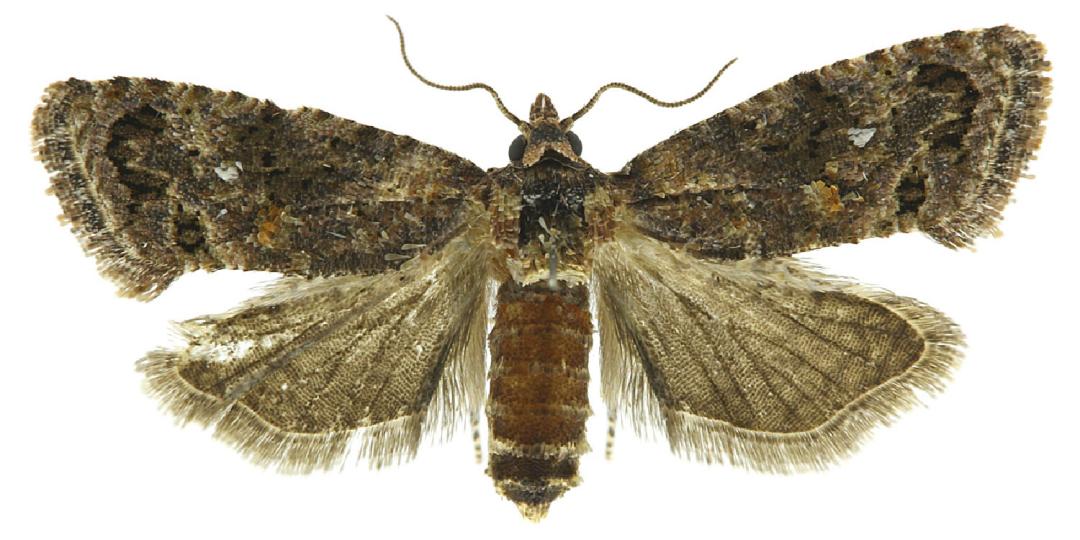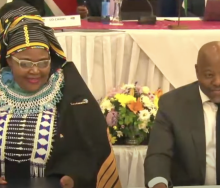Southern Africa’s export trade in oranges to Europe has received a setback from a sudden about-face by the EU Standing Committee on Plant, Animal, Food and Feed (Scopaff), about restrictive measures to curb the spread of a pest called false codling moth (FCM).
The measures, first repealed then bizarrely reinstated, could severely compromise the local export market of a billion euros per annum.
Apart from the potential loss of revenue, 120 000 related jobs at home and in Europe are directly at stake, Justin Chadwick of the Citrus Growers Association (CGA) has warned.
He explained that the decision underlying the reinstatement of the measures appears to be political in nature and not based on sound science, coming as it does from Spain, Southern Africa’s biggest competitor in the orange export trade.
Said Chadwick: “In case anybody doubts that these measures are anything but political, one just needs to look at the facts: after deliberating the new measures for two days, and realising the inherent flaws therein, Scopaff withdrew the measures on April 29.
“This caused great consternation in Spain.”
With his job hanging on the line, Spain’s agriculture minister, Luis Planas Puchades, flew to Brussels to persuade Scopaff otherwise – a desperate bid in which he succeeded.
According to Chadwick, Puchades met with directors general of the EU’s agricultural sector on May 3, and “in a hastily convened meeting the next day, Scopaff reintroduced the measure and voted on it, all in one day!”
He said South Africa’s citrus industry had dedicated itself since the 1970s “to take control of its own research and technical development on the premise that international trading partners would respect the International Plant Protection Convention and ensure that all measures governing the trade in fresh produce would be based on sound science.
“The events of the past few months have revealed that this premise is not altogether sound – and that politics often trumps science.”
In respect of Scopaff’s decision that the measures against South Africa, Eswatini and Zimbabwe were necessary, justified, proportionate and feasible, Chadwick carefully expounded why the measures didn’t meet these criteria of fairness.
Going through each and every one, he said:
- “Necessary: South Africa operates a sophisticated Systems Approach for FCM Risk Management, which already includes different cold treatment protocols, in conjunction with the categorisation of fruit in phytosanitary risk categories, established through intensive pre- and post-harvest sampling and inspection. The cold treatment protocols are then adapted to: (a) the risk profile of the specific fruit in question; (b) the conditions and logistical realities across a vast country; and (c) the characteristics of the fruit in question, including its cold tolerance. This offers the flexibility inherently required by a large range of produce produced across a large and diverse country and ensures on the basis of the best available scientific research that the systems approach meets Probit 9 efficacy standards” – Probit is the international standard for research in combating fruit fly.”
- “Justified: There is no crisis with regard to FCM interceptions relating to citrus imports. The South African track record shows a decrease with 14, 19 and 15 notified interceptions over the past three years (specific for Citrus Sinensis: 14, 12 and 10), and FCM has only been a quarantine pest for this length of time. This is a positive trend, especially in view of the (increased) volumes traded (99.98% of all shipments had no interceptions); and for 7 out of 15 interceptions in 2021 we have not been provided good evidence that the intercepted larvae were alive (pictures showing brown and black larvae). If anything, there is an issue with other commodities (flowers, vegetables) from other origins.”
- “Proportionate: The proposed measures would severely impact SA exports to the EU (valued at c. EUR 1 billion per annum and accounting for at least 120 000 jobs in South Africa directly and many more in both South Africa and Europe). There are clearly less trade restrictive and equally effective measures available such as the continuation of the existing Systems Approach, which has been further strengthened ahead of the 2022 season.”
- “Feasible: 86.6% of South African oranges exported to the EU in 2021 were loaded under Codes specified in the Risk Management system that do not require pre-cooling. This does not mean that this fruit poses a particular phytosanitary risk: the use of these Codes is only possible if the fruit meet the necessary specifications set out in the Systems Approach (inherently lower pest prevalence, applications of strongest parameters in other areas of the System (both pre- and postharvest monitoring, sampling, inspection etc.), and lower set-point temperature during shipping).”













